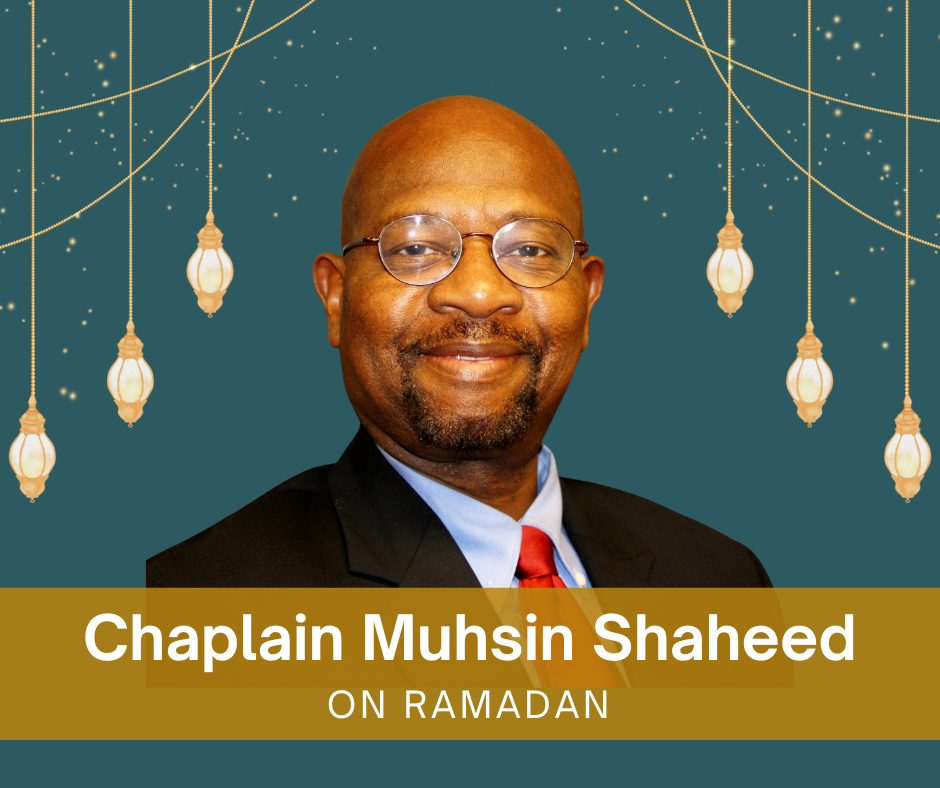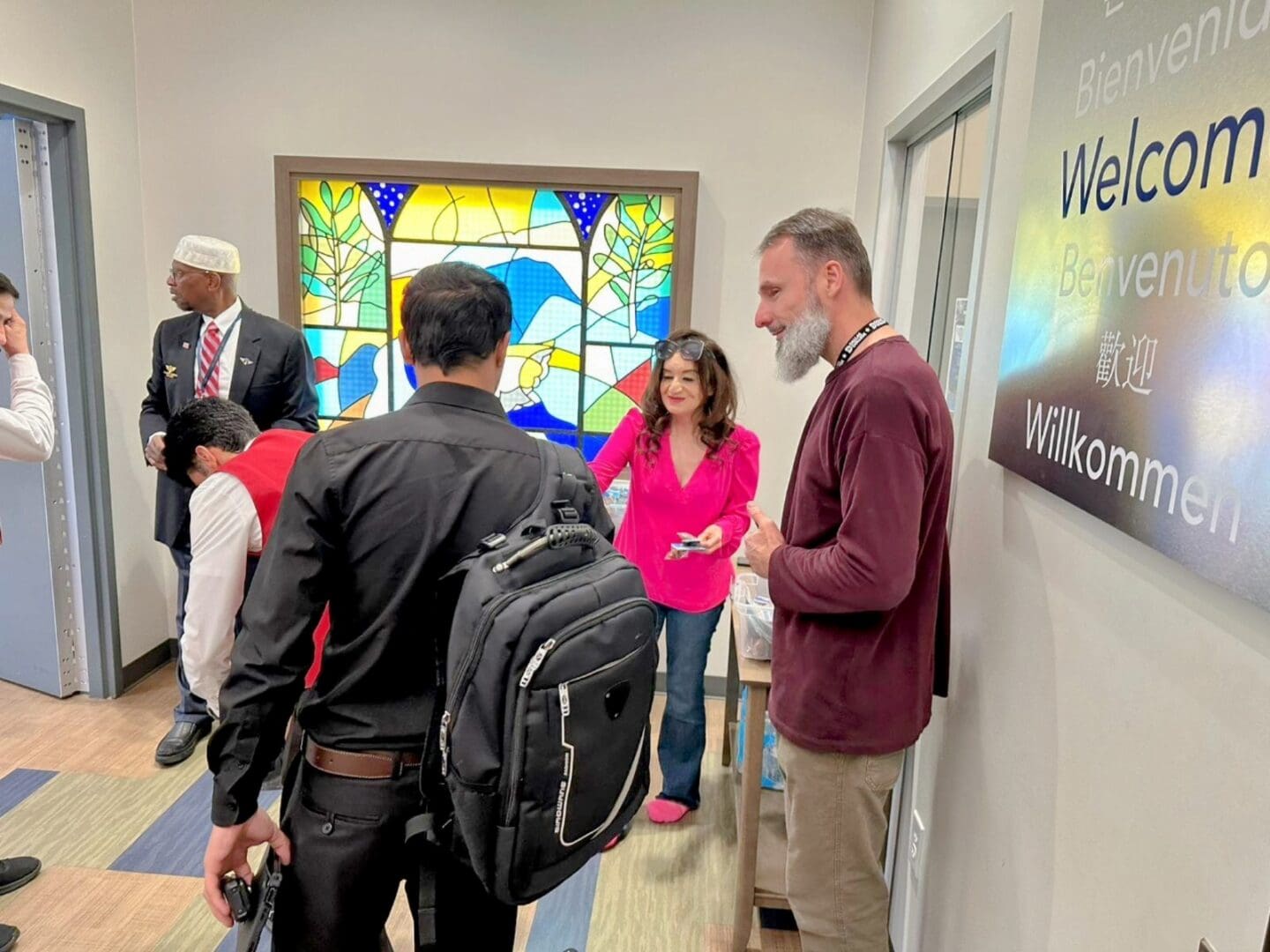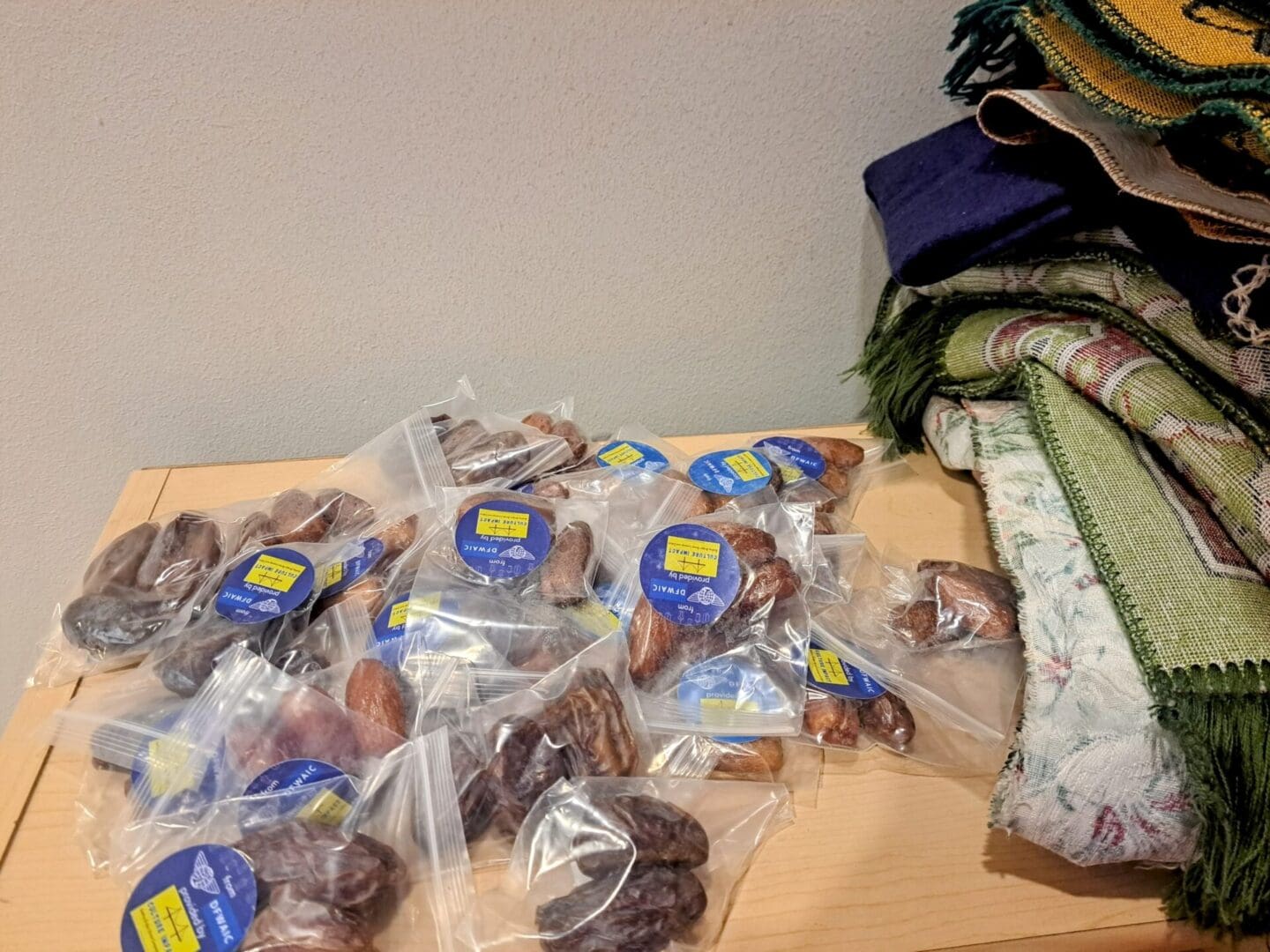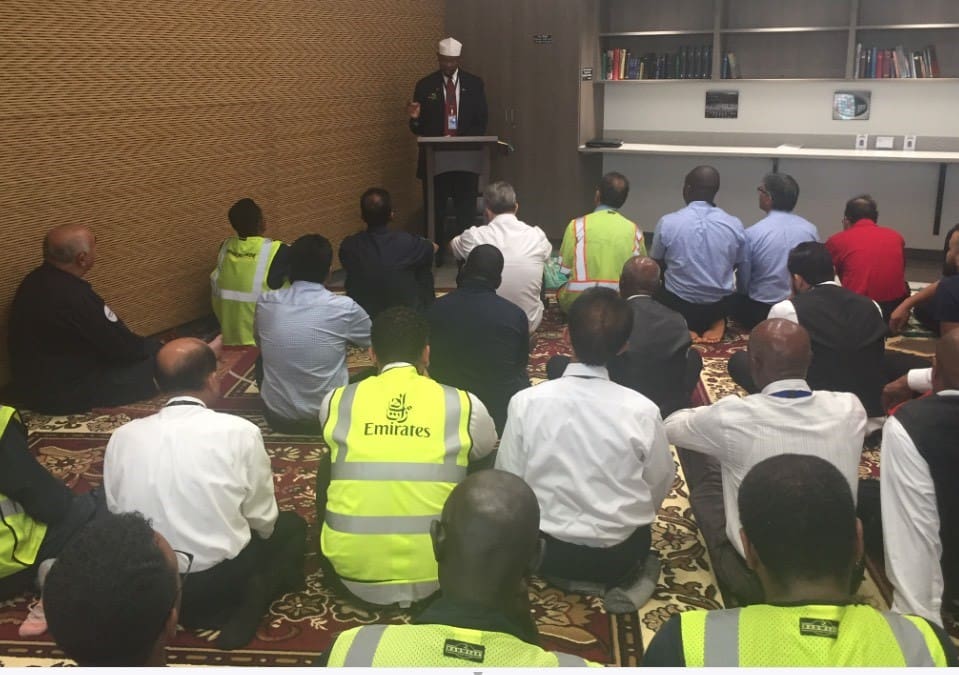Ramadan with DFWAIC

As our Muslim Brothers and Sisters practice Ramadan, we share some words from our Muslim chaplain, Muhsin Shaheed.
Ramadan is practiced by those of the Muslim faith. With nearly 1 in 4 people in the world being Muslim, Islam is the second largest religion.
During Ramadan, Muslims fast, which means they don’t eat or drink anything from dawn until dusk for 30 days. They also work on moral goals (no gossiping, lying, or treating others unkindly).
Muslims use this time to reflect on their relationship with God. Many may focus on how to be a better person, be more charitable, or help those in need.
What is the significance of fasting? Muslims believe this brings them closer to God and strengthens their spirituality and faith. The fast also helps with their self-discipline and gratitude.
At the end of Ramadan, the Eid al-Fitr is held to celebrate the break of the fast.
Other cultures and religions can relate to these same practices. Fasting is similar to Christian habits during Lent and Jews during Yom Kippur. Hindus and Buddhists also observe fasts during different times.




